Last year I did something that I have never really done before (do I need a drum roll you ask?) and that was to attend a cooking school in Italy to learn about the evolution and basics of Italian cooking. I will admit that I was fairly sceptical as to whether I would learn anything, I have been cooking for quite sometime, but a dear friend encouraged me to join and I thought, why not ?
It turned out to be one of the best decisions that I have ever made, (thanks Ellen) from the food lessons learnt, the random friendships forged. To say nothing of the sun, the view from my hotel and the joy of swimming in the clearest seas at 6 45 in the morning. And the endless amounts of excellent pasta that Chef John kept us nourished with (or is that overfed with?)
So how could I not come back.?! Question was - what else should I learn ? But cooking as in life, you never stop learning. And I had always wanted to find more about the art of cheesemaking. As luck would have it, the Italian Culinary Institute (ICI) offered exactly such a course. Even though I signed up last minute, there was room for me so tickets booked, bags packed, I was off on a new adventure. I knew I was really really good at eating cheese, but would I be able to master making it?
After 8 days of intensive training , I am very excited to embark on my own cheese making journey. And how lucky am I to be doing it here in France a country that absolutely celebrates cheese ? I may have gone to Italy to learn the fundamentals but my first attempt will be with making a fresh goats cheese - cos you know - the French know how to do that all too well.
But I need to back track a little. I arrived on Saturday after a brutally early flight from Paris, just in time for lunch. Classes started at 9am sharp on Sunday. First up was an introduction to Italian cheeses. Not all of this was new to me but after tasting some cheeses that I had never heard of, there was time to get out the note book and listen. And listen I did. For the next seven days, I listened and learnt and enjoyed the process of learning cheese making something that I realised that I knew very little about.
Luckily for me in class I met a fabulous woman who had been making cheese for some 10 years who I immediately befriended. Through her experiences, the cheese making classes took on another level. (mostly what not to do) but sharing with me some the things to look for when making cheese, such as how to check to see if the milk has coagulated enough and how to cut the curds so that they are even. She and I also exercised together, walking up and down the steep hill that leads to the school - we had to walk off some of that cheese !
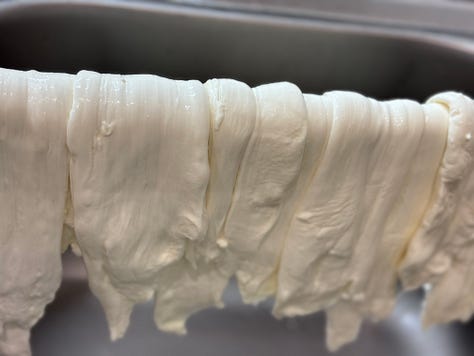
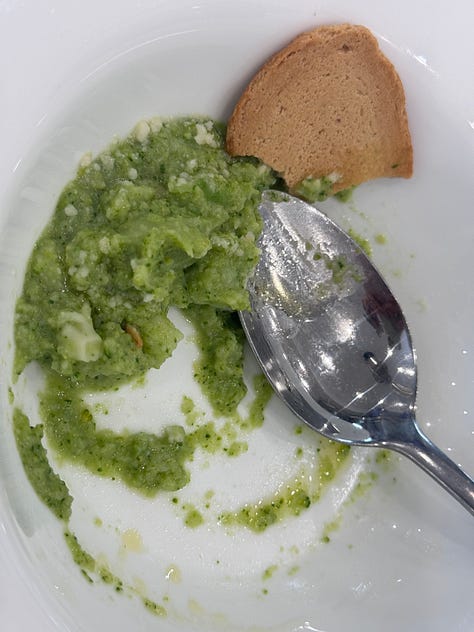
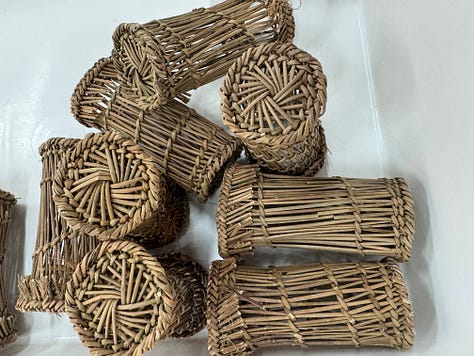
Day two was science day. My aspiration growing up was to be a doctor; but after two lessons of physics, I knew that, sadly, I was never going to be a surgeon, (probably a good thing). However the cheese making class had engaged an excellent teacher Yi Chern, who holds a masters in Food Science, and suddenly casein and ph levels seemed understandable. Lactic acid, raw milk risks, and mesophilic starters was a new world for me but he made it seem all so approachable. And like any good teacher, he challenged all of us, even the ones who were very much involved in the world of cheese making. I very much appreciated the commitment by the school to making sure the science behind the production was well taught. It’s everything in cheese making! So many of the “levers” that can be pulled in order to make good cheese depends on basic science principles..
Next came the fun part - the joy of experimenting with controlling the flavour and taste. The next four days underlined my reason for being back at the ICI. That and the afternoon breaks to swim in that so so clear water and just walk and to discover yet another beach, well .. I knew why I came back.
So we then took all that science and took it to the classroom. We were handed a recipe book - I had no idea that cheese involved following a recipe but I knew that I could do that. We started with pecorino and now Chef John and Yi Chern joined forces, Yi Chern, measuring all the rennet and starter bacterias. They didn’t always agree on how to go about certain processes but their differences in view were always done with a great deal of humour and they were both helpful in explaining the reasoning behind their perspectives. In so far as teachers go - they made a great pair. The importance of labelling EVERYTHING when it comes to cheese making was reinforced time and time again and well, when Yi Chern overlooked this golden rule, let’s just say, he didn’t do it twice ! We were also shown how to make yoghurt, sheep’s milk gelato and crème fraîche that day and at lunch we ate a delicious salad of goats cheese and fig marmelata. And a lovely pasta dish of broccoli, topped with a sheep’s milk cheese. All of this and it was only day three!
Then it was day four and time to take a deep dive into Pasta Filata cheese (mozzarella burrata etc etc). But more of that next week in part two of cheese cheese cheese!
Basic ricotta recipe (you don’t need rennet)
This recipe is relatively easy and a good way to start making the simplest of cheeses.
Look out for part two next week !
Kathx

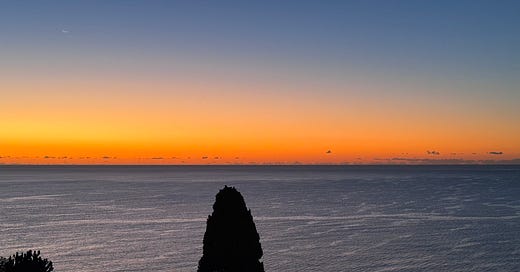



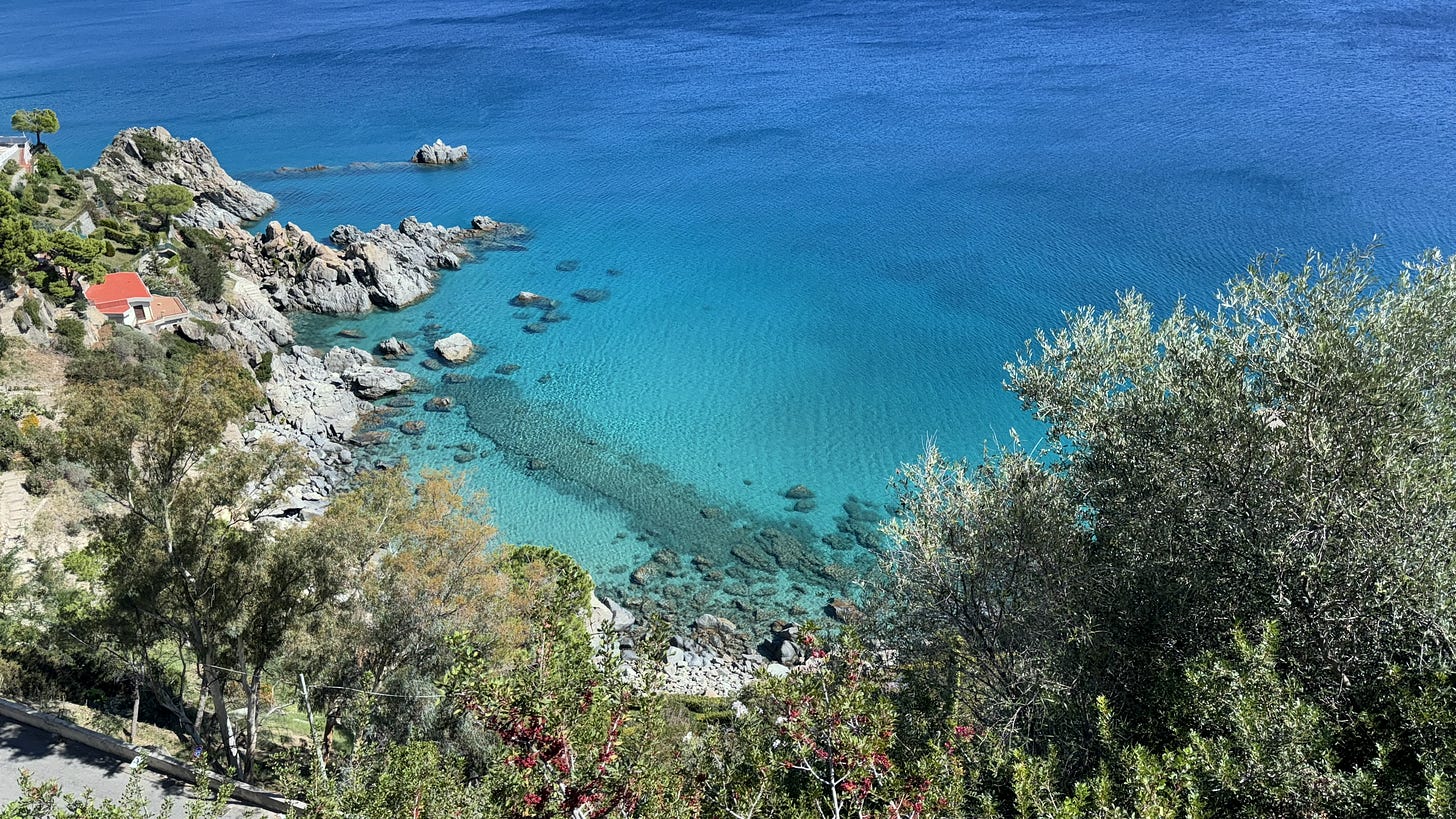
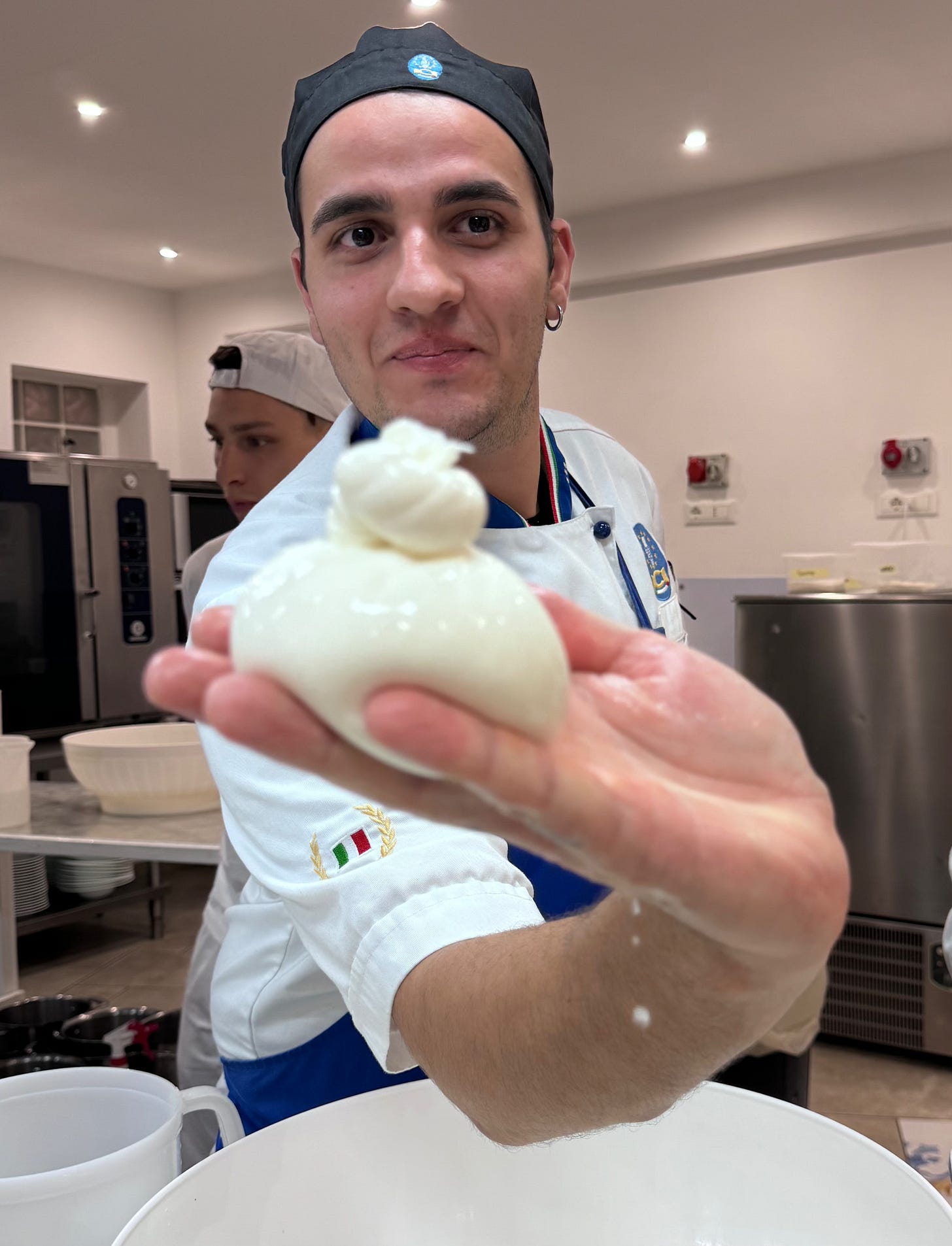
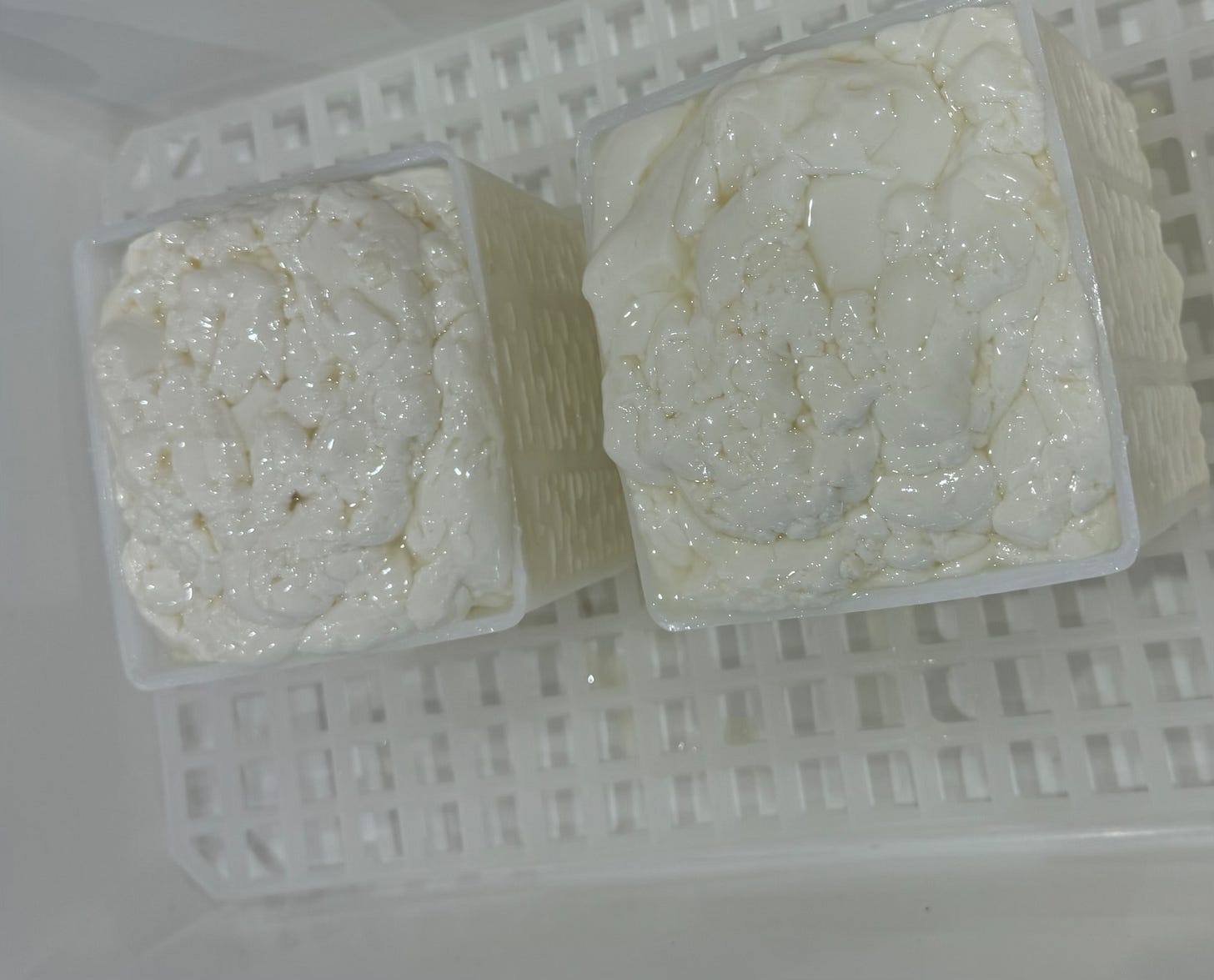
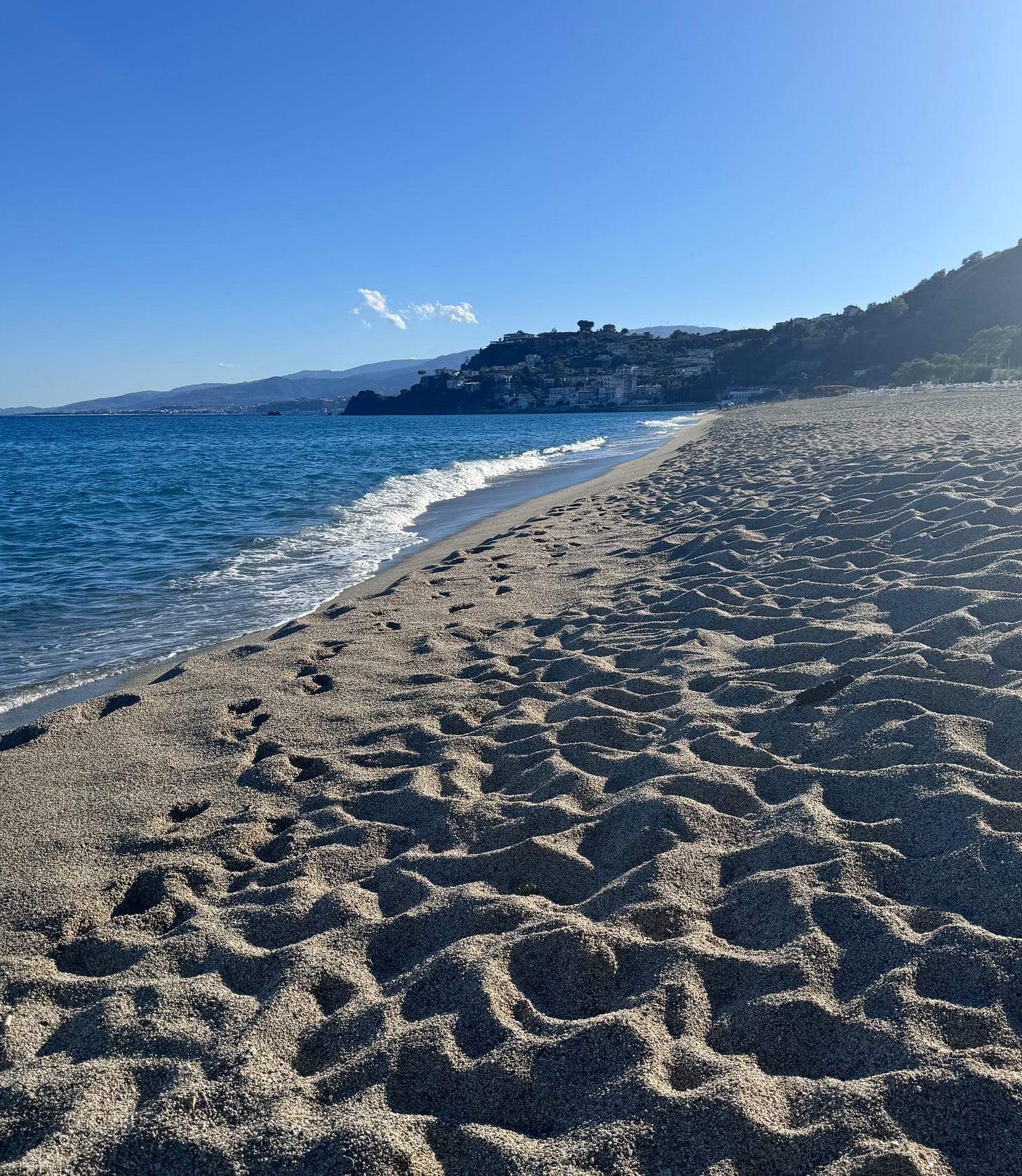
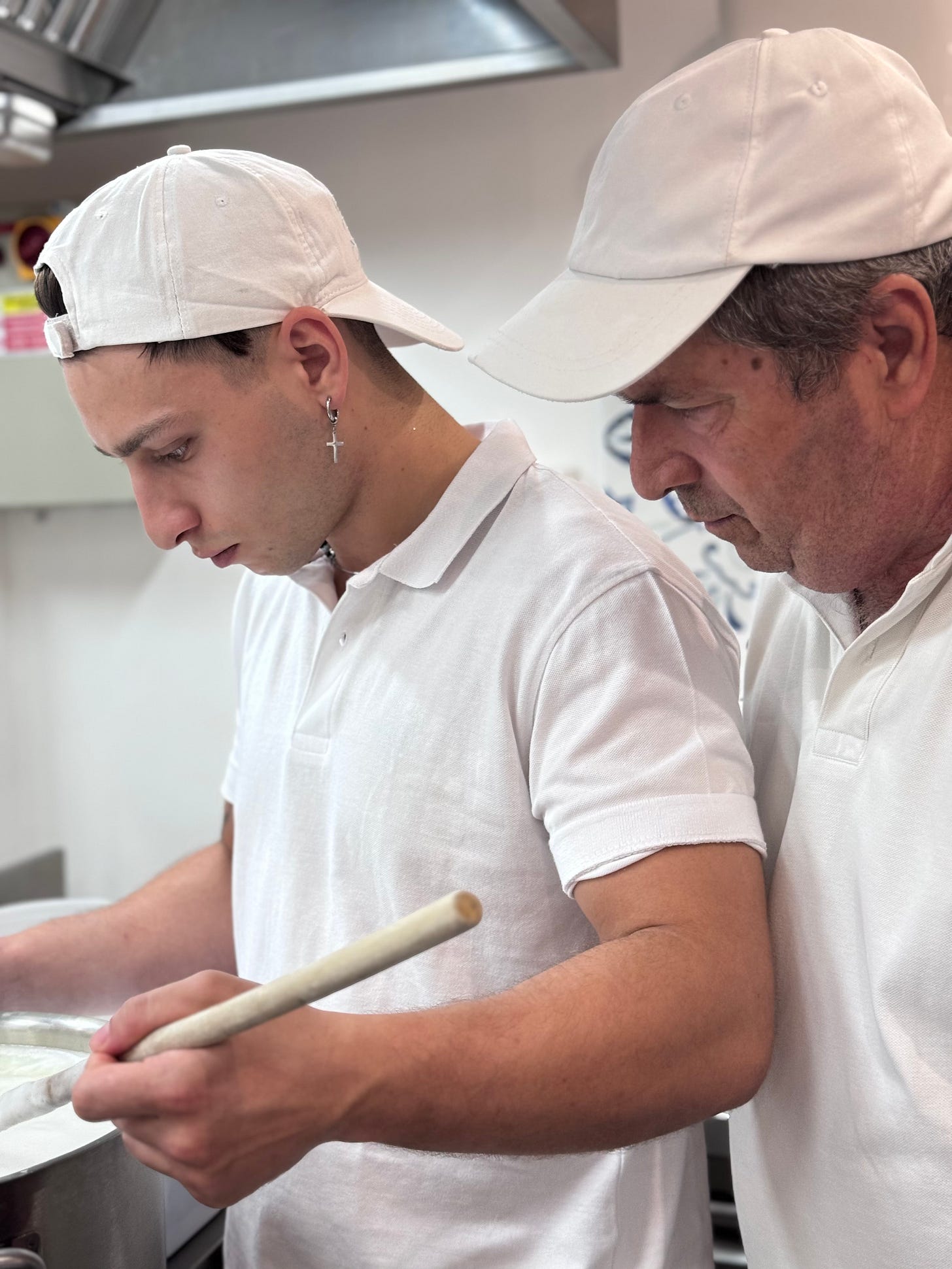
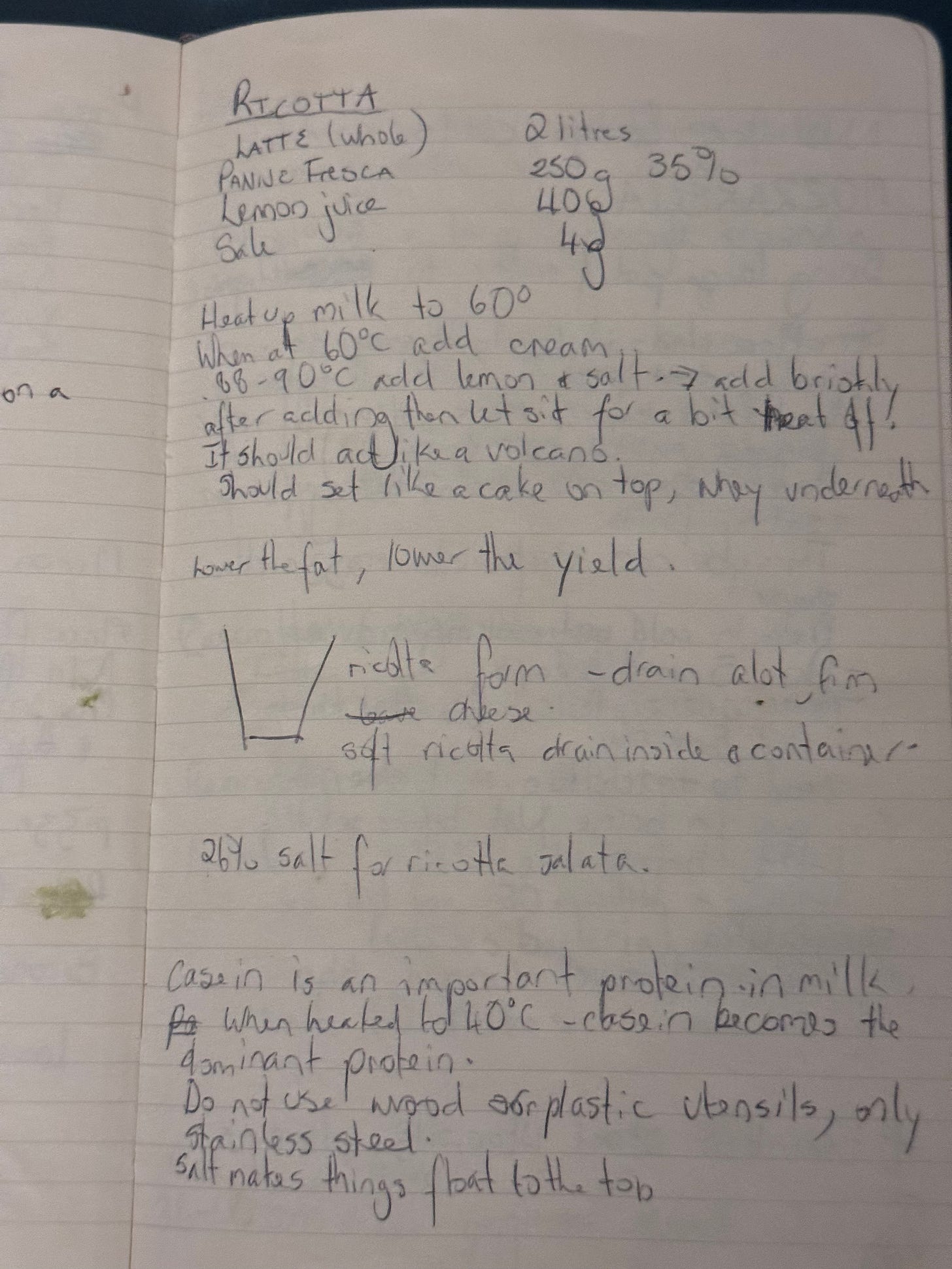
I am so excited for ICI next May. Thanks for all the stories about ICI and your experiences. It has made all the difference!